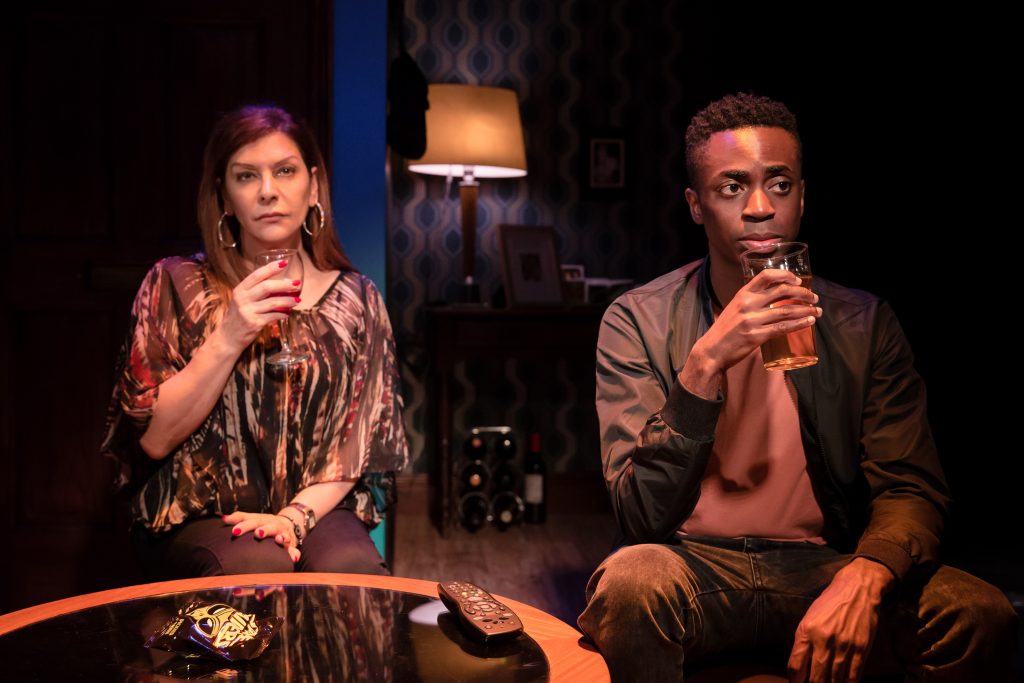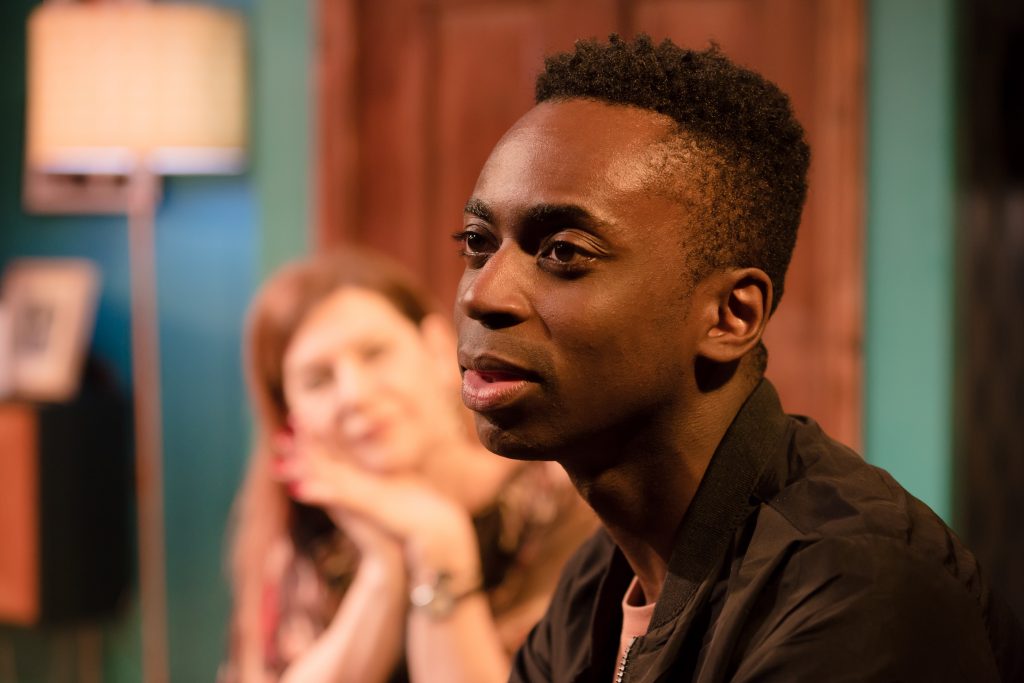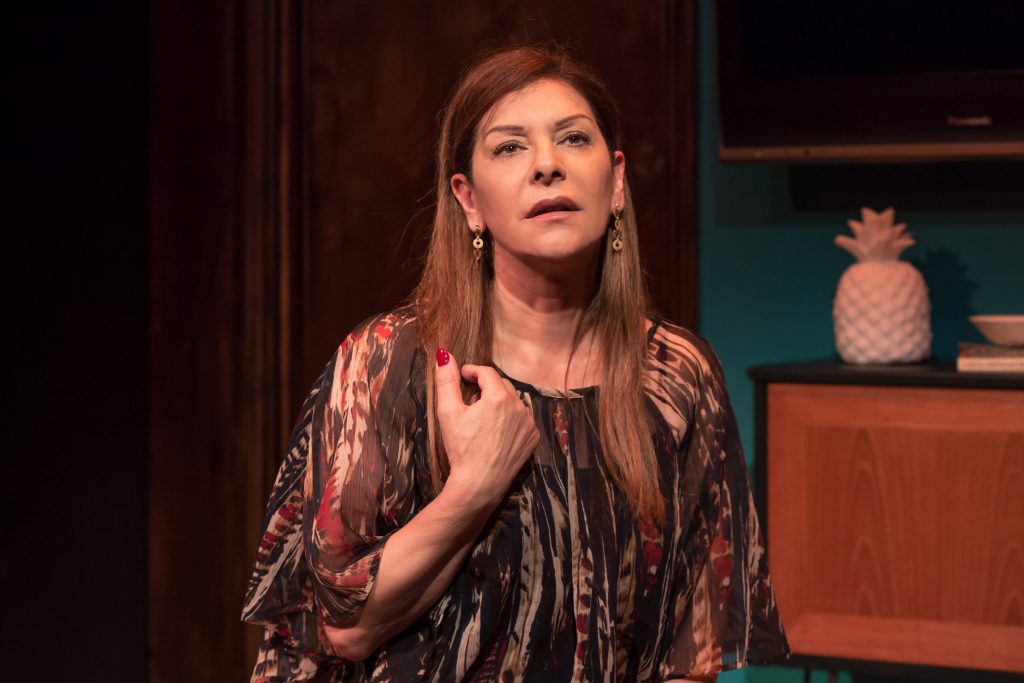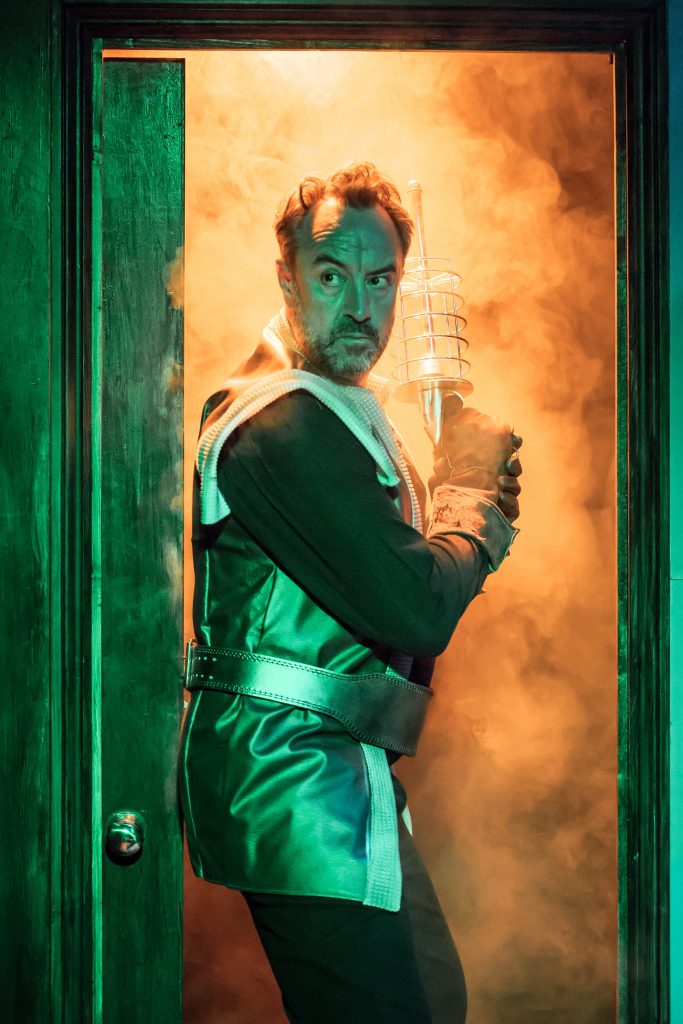
 (3 / 5)
(3 / 5)
Dark Sublime’, the title of which takes a line from the W.H. Auden poem ‘The More Loving One’ is about intergenerational relations, sci-fi fandom and whether you can love the art but hate the artist.
If you know Star Trek, you’ll know Marina Sirtis, who plays the central character, a middle-aged British soap star called Marianne, once played the resplendent empath Deanna Troy in The Next Generation. Marianne is getting less work than she used to, and has resigned herself to a life of good wine, radio plays, assorted boiled sweets and getting drunk on decent wine in the afternoon with her best friend and neighbour Kate (Jacqueline King), who she has always held a torch for.
If you are more than a casual Star Trek fan, or you’ve paid very close attention to the #MeToo movement, you’ll also know that Grace Lee Whitney, who played Kirk’s secretary Janice Rand in the original series, before having her contract cancelled after episode eight, later claimed in her autobiography that an unnamed executive sexually assaulted her.
Gene Roddenberry’s utopian series, commended for its diverse casting, was also overtly sexist. Female characters were lusted after and demeaned by the male characters. It was the Sixties, and sexual liberation and mini-skirts vied with rampant sexism. Reflecting back as a woke feminist, I now regret the time I covered myself in green body paint and posed for Rankin as an Orion slave girl in homage to Star Trek’s pilot episode (to his credit, Rankin decided I was a she-hulk and made me look very powerful in the photos).

Aaanyway, it didn’t stop there, this tension between the idealistic, progressive values shown on screen and the reality behind the scenes is something that the play references and runs parallel to, with a pig of an actor eyeing up the young fans and Marina explaining: “Things were different then.”
Almost as important as Marina’s character is Oli (Kwaku Mills) a young, passionate, gay, black geek of 21 years old. He is a fan of Marina’s female-fronted hokey sci-fi series, he hunts her out and for a brief few months, they get to know each other. The generational void between them is massive, fraught with misunderstanding and strained pauses, but they also teach each other something.
Marina Sirtis is beautifully nuanced in her characterisation of Marianne, flickering between unarticulated yearning and bouts of angry resentment that her life hasn’t turned out quite the way she hoped, but scenes between Marianne and Kate feel under-rehearsed and one entire scene where they discuss Marianne’s upcoming trip to Oli’s Comicon-style convention feels totally redundant.
In fact the whole two and a half hour show could have been squeezed into about 80 minutes. There’s not enough action to fill it out and it sometimes meanders from one vague theme to the next without ever hammering a point home.
I did wonder if removing LGBTQI icon Sophie Ward’s character entirely might have tightened up the script, she plays Kate’s love interest, a younger hippy who works in finance, but scenes with the two of them together tended to drag and feel like an unneccessary add-on to the main plot.

There are loads of interesting ideas here about what older generations might learn from younger ones and vice versa, and a strong affection for science-fiction pervades everything. But somehow the exploration of the themes is unsatisfactory.
The set, by Tim McQuillen-Wright, is a mid-century modern living room which turn’s into a 60’s space-ship, with a decorative pineapple glowing different colours and the coffee table and TV screen transforming into operations consoles. The rainbow stained glass in the door frame gives voice to the onboard AI computer, voiced by Mark Gatiss.
This set allows us glimpses of the camp, non-sensical series that Marianne made, with Simon Thorp galumphing manfully about the stage, laser blaster aloft, spouting intergalactic drivel. It’s funny, but could be funnier if the words made a little more sense.

Writer Michael Dennis also wrote a short drama for the Queers series starring Mark Gatiss which aired on Channel 4 last year, to mark 50 years since laws were passed exempting gay men from prosecution. This is his first play and to get it on at Trafalgar Studios is a big win. But I felt it could have benefitted from a few more test runs before boldly going into the uncharted and sometimes harsh realities of a live audience.
